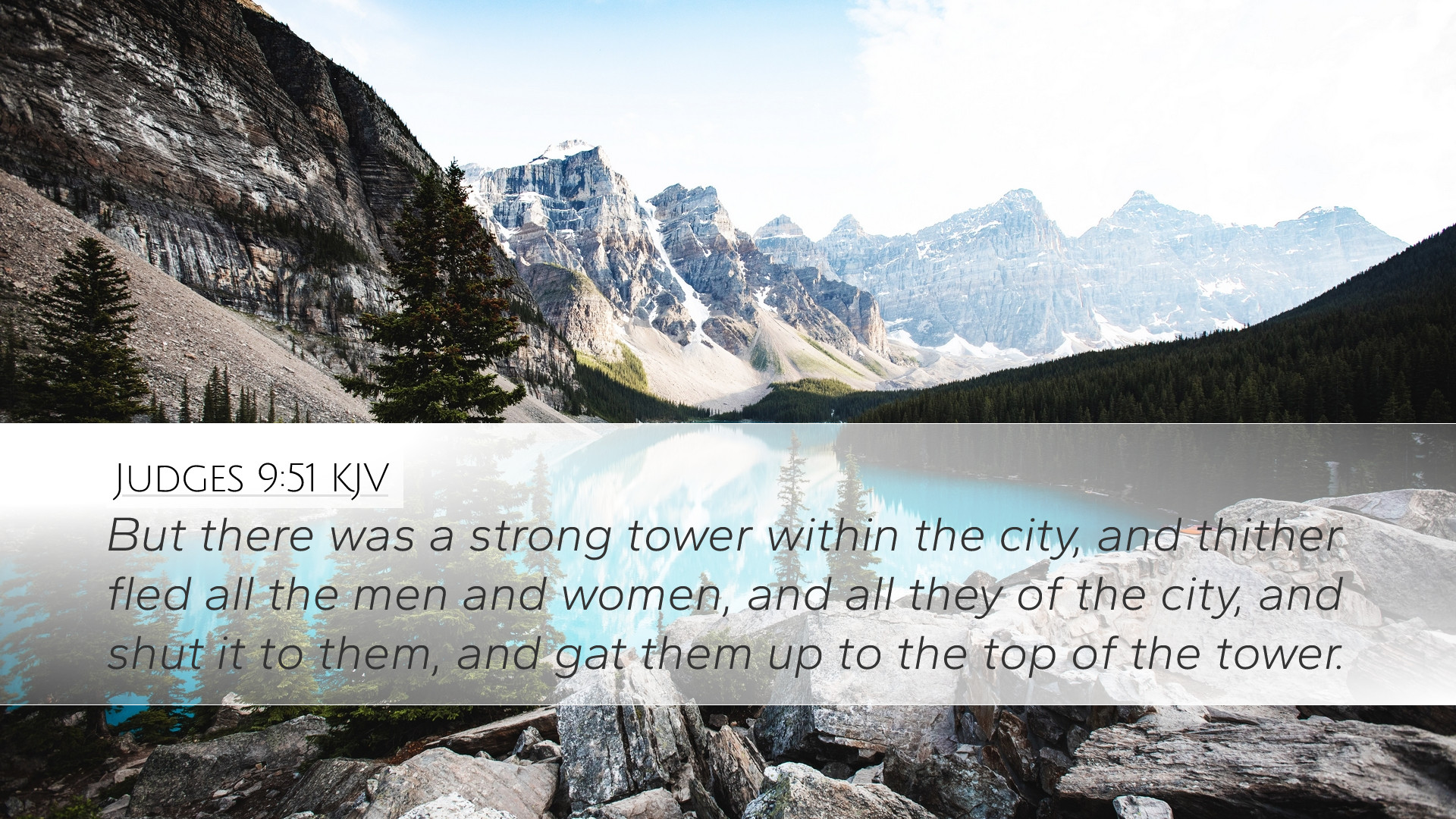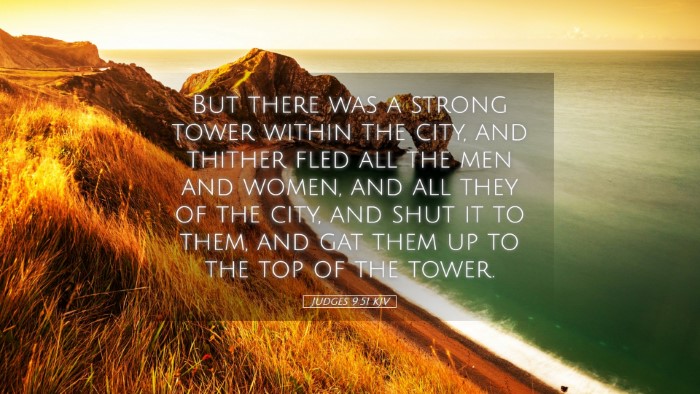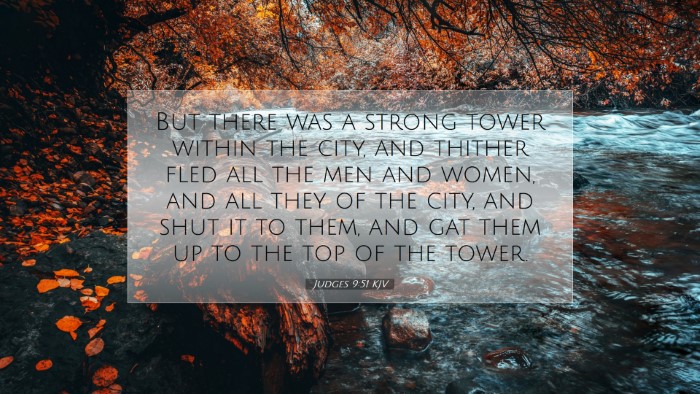Commentary on Judges 9:51
Verse Context: Judges 9:51 states, "But there was a strong tower within the city, and thither fled all the men and women, and all they of the city, and shut it to them: and got them up to the top of the tower."
Introduction
The passage of Judges 9:51 marks a pivotal moment in the narrative surrounding Abimelech, one of the infamous judges of Israel. It is within this segment that the story encapsulates themes of refuge, judgment, and divine response to human actions. This commentary draws on insights from Matthew Henry, Albert Barnes, and Adam Clarke, aiming to provide a thorough exegesis that resonates with pastors, students, and scholars alike.
The Significance of the Tower
The tower in this verse symbolizes a place of safety and strength amidst chaos. As noted by Matthew Henry, the tower was not merely a physical structure but represented a stronghold of defense against their adversaries. The act of fleeing to this tower demonstrates human instinct towards self-preservation, showcasing the city’s inhabitants’ desperate search for safety against Abimelech's violent campaign.
The Symbolism of Refuge
Albert Barnes elaborates on the tower as a biblical metaphor for refuge often seen throughout the Scriptures, relating it to the relationship believers have with God. Just as the men and women fled to the tower for protection, so do believers seek refuge in God during times of distress. This parallel draws attention to the recurring theme of seeking divine shelter, which underscores God as a fortress and source of strength for His people.
Theological Implications
This verse prompts discussions about human responses in the face of adversity. Adam Clarke points out that while the inhabitants sought the physical security of the tower, it also symbolized the broader spiritual truth that true safety ultimately lies in reliance upon God, not solely on human provisions. The tower, thus, serves as a critical reminder of the fleeting nature of earthly defenses compared to the eternal security provided by God.
Human Agency and Divine Sovereignty
The actions taken by the people of Shechem reflect a complex interaction between human agency and divine sovereignty. The inhabitants of the city acted according to their instincts, trying to protect themselves from Abimelech's tyranny. Matthew Henry observes that their decision to go to the tower illustrates the importance of human actions—even in dire situations—while also acknowledging God’s overarching control over events.
Judgment and Justice
The verse also serves as a backdrop for understanding divine justice. Abimelech’s violent usurpation and the subsequent flight of the Shechemites portray the harsh realities of retributive justice seen throughout the narrative of Judges. This aligns with Albert Barnes' interpretation of the historical context, where such events were often perceived as consequences of the people's collective failures to uphold God's covenant.
Reflections on Leadership
Abimelech’s rise to power and the subsequent response of the people provide deep reflections on leadership. This narrative invites pastors and theologians to consider the ethical implications of leadership. Clarke emphasizes that such tyrannical rule leads to inevitable downfall, and the actions of Abimelech serve as a warning against self-serving leadership devoid of moral and communal accountability.
Lessons for Today
Judges 9:51 imparts invaluable lessons relevant to contemporary faith communities. It calls for introspection about where individuals and communities seek their safety and assurance. The "tower" can manifest in various forms today—be it wealth, power, influence, or societal status—and it challenges the faithful to redirect their trust toward God as their ultimate stronghold.
Community and Support
Furthermore, this passage illuminates the significance of community support in times of crisis. Just as the people gathered to the tower, believers should be encouraged to turn toward one another, fostering environments of love and support amidst life’s trials. Matthew Henry’s thoughts resonate strongly here, highlighting that collective responsibility and unity in faith significantly bolster the spiritual fabric of a congregation.
Conclusion
In conclusion, Judges 9:51 encapsulates a profound narrative of seeking refuge amidst turmoil, reminding believers of their need for divine protection and guidance. As we reflect on the historical and theological messages contained within this verse, may we be inspired to find our fortress in God, to seek collective strength in community, and to heed the lessons of history as we navigate our own paths of faith.
Final Thought
As pastors, students, and scholars delve into this rich text, may the insights drawn from the commentaries of Matthew Henry, Albert Barnes, and Adam Clarke serve to enhance their understanding and application of God's Word in their lives and ministries.


